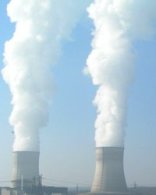 Union environment minister Jairam Ramesh has written to the Prime minister on the need to review the earlier central plan to develop six 'nuclear parks'.
Union environment minister Jairam Ramesh has written to the Prime minister on the need to review the earlier central plan to develop six 'nuclear parks'. This includes the much-debated 10,000 Mw Jaitapur project in Maharashtra, opposed by various political parties and non-government bodies, but staunchly pushed by the state government.
Ramesh's letter says this is neded in the wake of the Fukushima nuclear disaster in Japan, which is still unfolding. Projects with such high generation at one location need to be examined from the safety point of view.
Ramesh has said he was aware of the financial and technical advantages of nuclear parks but there should not be a rigid stand, especially after what had happened at Fukushima.
The letter comes at a time when the biggest opposition party in Maharashtra, the Shiv Sena, had organised a rally at Jaitapur to step up its demand to adnadon the project. Ramesh's ministry gave conditional clearance to the Jaitapur project last November.
Ramesh was not available for comment. However, officials at the state government and the Nuclear Power Corporation (NPC) confirmed what he had written.
An NPC official, who did not want to be named, strongly justified the development of the proposed six nuclear parks, including the Jaitapur project.
"This is quite a common concept across the globe. Even in Japan, there have been a cluster of reactors which remain unaffected. There is no correlation - safety, manpower and security are independent. There are advantages of having a cluster," he said.
Ramesh's letter agrees there are constraints in the availability of sites for proposed nuclear projects. However, his letter says, development of mega projects at one location such as Fukushima need examination.
There are six reactors at the Fukushima Daiichi site and four more at adjacent Fukushima Daiini. The reactors are Daiichi are of 460-780 Mw capacity; at Daiini, these sre 1,100 Mw each. Of the six at Fukushima, four were affected by the recent earthquake and tsunami.
Ramesh's letter came up for discussion in the state assembly on Friday. Shiv Sena group leader Subhash Desai sought the state government's stand in this regard on Jaitapur.











 © 2025
© 2025